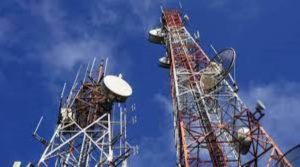
Telecom
Telecommunications service providers under the auspices of the Association of Licensed Telecoms Operators of Nigeria have stated that a tariff review for telco services may occur if the price of diesel continues to rise.
Advertisements

NewsReport gathered that the Chairman of ALTON, Gbenga Adebayo, revealed this in an interview he said according to him, the telecommunications industry is a major consumer of diesel in the country.
He claimed that the recent increase in fuel prices and unavailability of the product has already had an impact on the sector.
“It is already having a major influence on us,” he said. We are one of the industries with the greatest diesel usage in the country.
“Our need is not just in the major cities; it is all across the country. Diesel is required in all the places that require services. We are already significantly impacted. And it is not just about the high costs, it is also about availability. Suppliers are beginning to find it difficult to supply the commodity because of scarcity.
“When they find, costs of haulage have gone up. The cost of procurement of the diesel itself has gone up significantly. We are actually in a very bad situation. And how this will play in end-user pricing requires us to follow the right channel, the regulatory procedure for conveying our complaint to the regulator.”
According to Adebayo, telcos will continue to ensure that there are no service disruptions in the nation. However, he added that there might be a need for a tariff review if the present diesel crisis persists.
He said, “The diesel situation is a problem at this time. We are doing all that we can to ensure the business continues as usual in all cases and other every circumstance. The assurance for the public is that there would not be a time of outage because of the current diesel crisis. What I cannot assure is that at some point there may not be a consideration for some form of tariff review.
“I cannot guarantee that it will not happen sometime in the near future. I cannot guarantee that. But as it stands today, I will reassure the public that there would be continuous service at all times.
“We will continue to solve the problem to the best of our ability. We certainly need to approach the government for some intervention at some point. We are where we are. All that we are doing at this time is to ensure there are no disruptions to service.”
According to a source in one of the telecoms companies in the nation, the operating environment for telcos is now tougher. The source added that the present crisis might cause service disruptions if it persists.
The source said, “For instance, we have about 20,000 base transceiver stations across the nation, and each one of them has two industrial generators.
“You can imagine what it must be costing to fuel two generators in over 20,000 places. It is a lot. As you are aware, we do not directly manage those stations anymore. But irrespective of who is managing it, the cost has definitely been impacted. Operating is more difficult now.
“In the long-term, this will cause service disruptions. We might have to renegotiate contracts with those helping us manage the stations. As you know our call rates are regulated, meaning there is a ceiling and a floor. We cannot because of this change our call rates.”
The price of diesel has tilted towards N850/liter and is continuing to increase daily. In January, diesel was N350 per liter in Lagos.